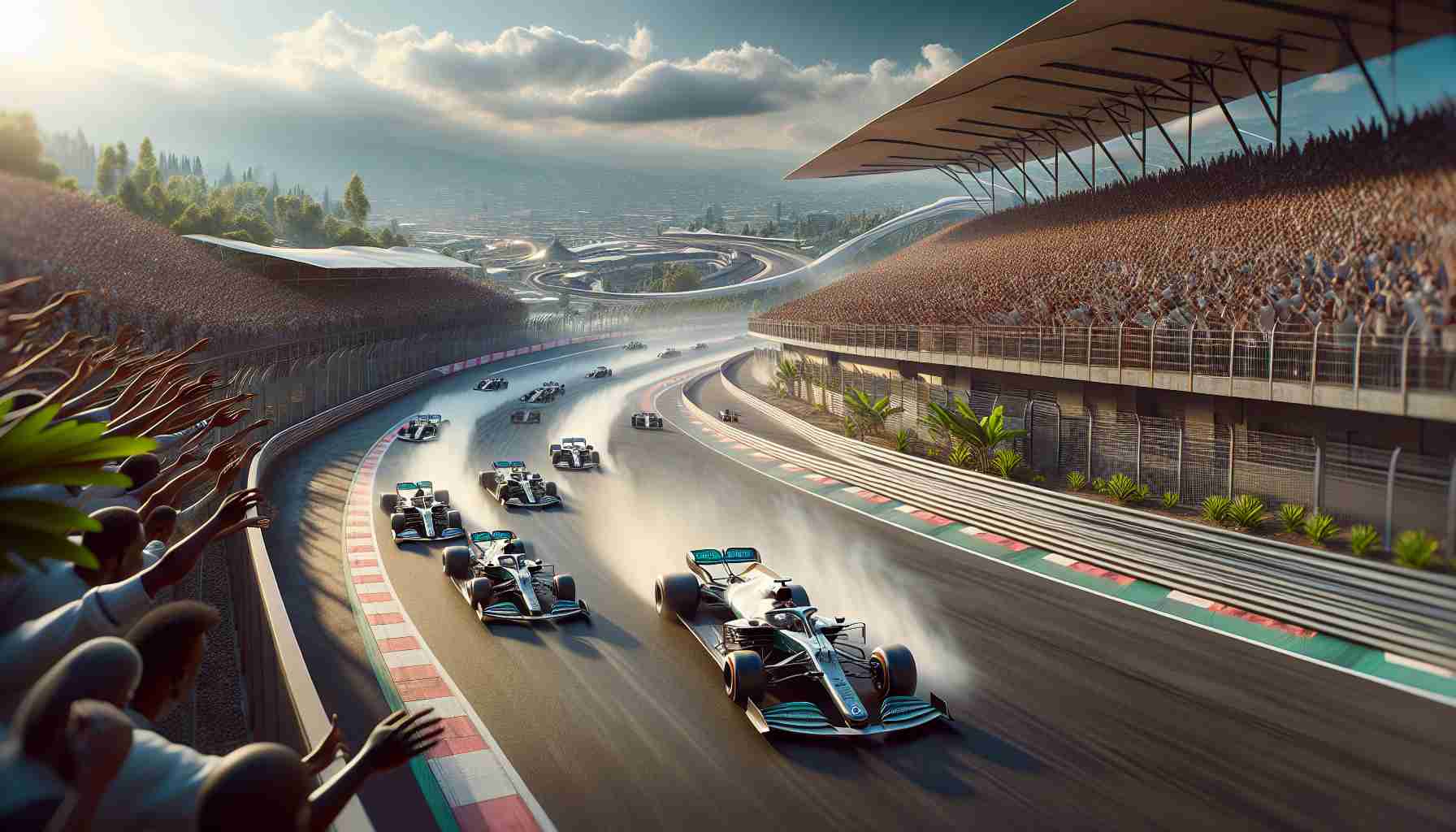Rwanda has officially expressed its desire to host a Formula 1 race at a new circuit near the future site of Bugesera airport, just outside Kigali. The planned track will be crafted by former Formula 1 driver Alexander Wurz, who is designing it to incorporate the stunning hills and landscapes of the region.
This ambitious project has been a collaborative effort between Wurz’s team and Rwandan officials for over a year. The course promises to feature intricate curves and stretches that weave through forests and alongside tranquil lakes. Wurz, who is also involved in developing a new track in Qiddiya, Saudi Arabia, emphasizes a modern racing experience.
The move to revive F1 in Africa represents a significant shift in the racing world, driven by discussions between F1 CEO Stefano Domenicali and Rwandan representatives. Reflecting on their negotiations, Domenicali acknowledged Rwanda’s formal bid and asserted that a solid plan is in place for a permanent racetrack.
During the recent FIA Prize Gala in Kigali, the Rwandan president celebrated this momentous announcement, acknowledging the seriousness of their ambition. They also recognized the support of key figures in motorsport, including FIA president Mohammed Ben Sulayem, who lauded Rwanda’s growing role in the racing community.
With the backing of prominent drivers like Lewis Hamilton, who advocates for Formula 1’s return to Africa, the excitement is palpable. The continent may soon welcome the exhilarating world of grand prix racing, showcasing its beauty and potential on a global stage.
Rwanda Revvs Up for a Grand Prix: The Formula 1 Race That Could Change Africa
Rwanda Aims to Host Formula 1
Rwanda is making headlines with its ambition to host a Formula 1 race at a newly proposed circuit located near the upcoming Bugesera airport, just outside the capital city of Kigali. This major initiative marks a historical pivot for motorsport in Africa, as discussions have intensified between Formula 1 executives and Rwandan officials over the last year.
Innovative Track Design
The envisioned racing circuit is set to be designed by former Formula 1 driver Alexander Wurz, renowned for his architectural acumen in motorsports. The track will undoubtedly be a centerpiece of the landscape, incorporating the region’s stunning hills and natural beauty. Wurz aims to create a state-of-the-art racing experience, characterized by intricate curves and exciting stretches through Rwanda’s lush forests and serene lakes.
Key Collaborations
This ambitious project highlights a collaborative effort not just between Wurz’s design team and Rwandan officials but also involves support from leading figures in motorsport. FIA president Mohammed Ben Sulayem and other motorsport stakeholders have commended Rwanda’s growing involvement in the racing arena. Their endorsements underscore the potential impact of bringing a Formula 1 event to the continent.
Economic Prospects and Community Engagement
The introduction of a F1 race in Rwanda could bring several economic benefits, including tourism, job creation, and infrastructure improvements. The presence of international visitors and media could enhance Rwanda’s profile as a travel destination, showcasing its beautiful landscapes and vibrant culture. Furthermore, local communities could benefit from increased commerce and engagement with global brands, fostering a thriving motorsport culture.
Challenges and Considerations
While the project is promising, it faces challenges typical of such large-scale endeavors, including funding, environmental impact considerations, and the logistics of hosting a world-class event. Balancing development with sustainability will be crucial as Rwanda navigates this exciting opportunity without compromising its rich natural heritage.
The Future of F1 in Africa
As Rwanda positions itself as a potential host of Formula 1, the discussions signal a larger trend of expanding the sport’s reach globally. The interest from F1’s CEO Stefano Domenicali, alongside praise from prominent racers like Lewis Hamilton, indicates a mounting enthusiasm that could reignite interest in racing throughout Africa.
Conclusion
With a determined vision and strong support from the motorsport community, Rwanda’s initiative to host a Formula 1 race is a step toward a transformative chapter in African motorsports. If successful, this event could set a precedent for future races on the continent, offering a thrilling intersection of sport, culture, and economic growth.
For more information about motorsport in Africa, visit FIA.
